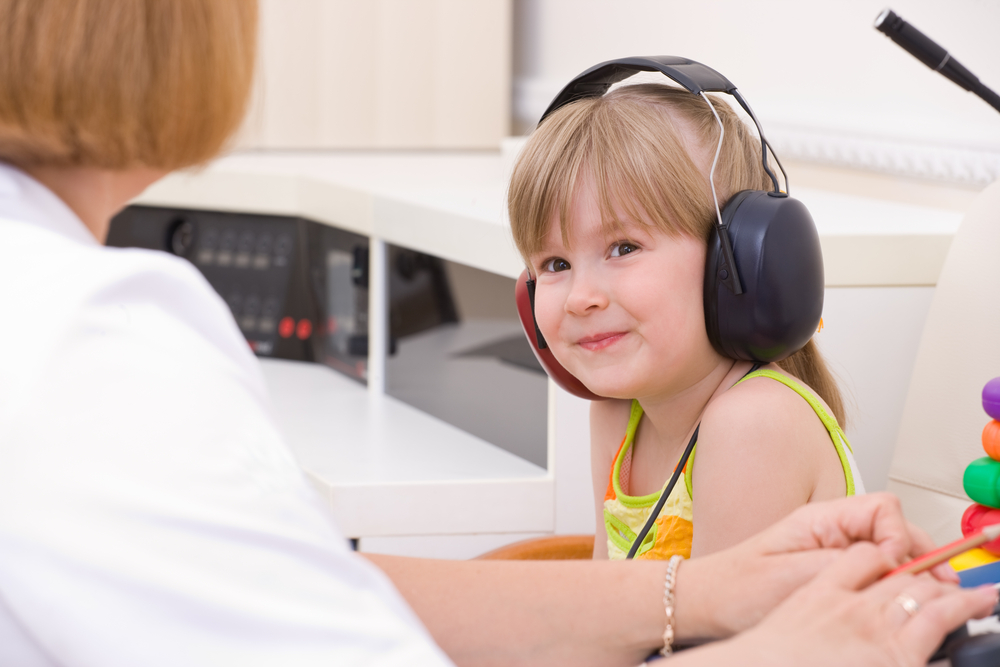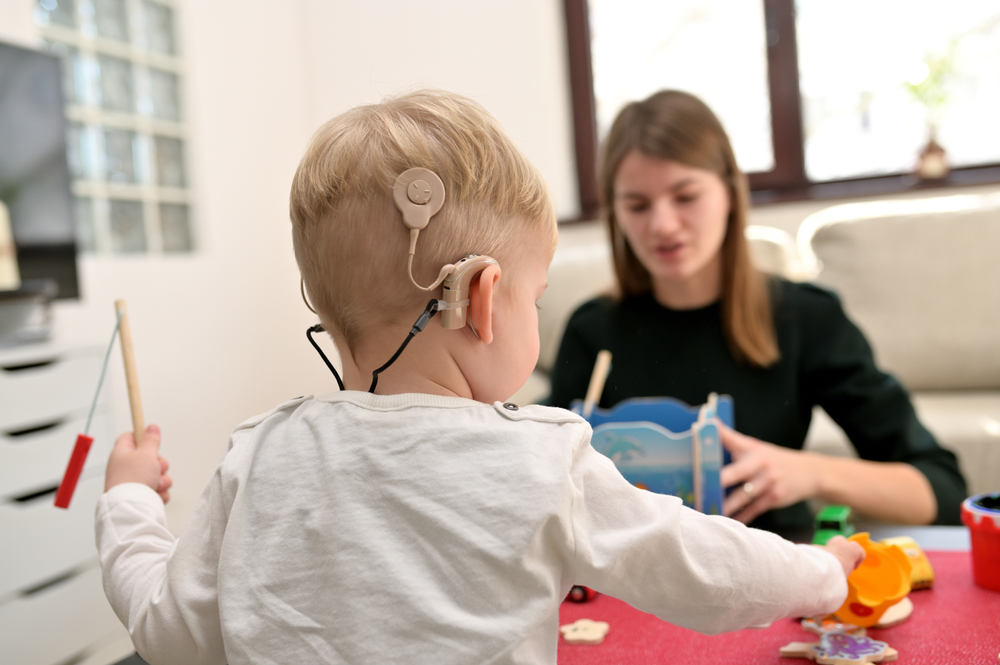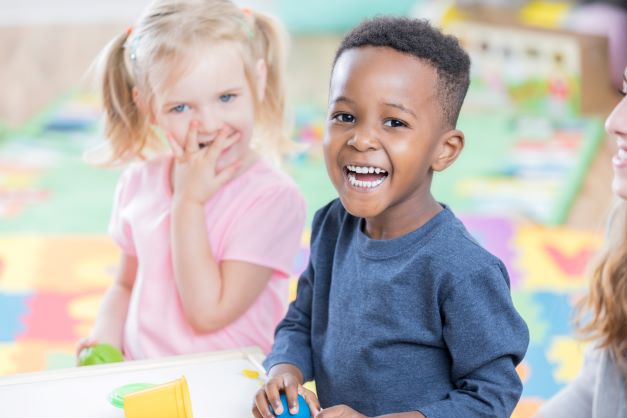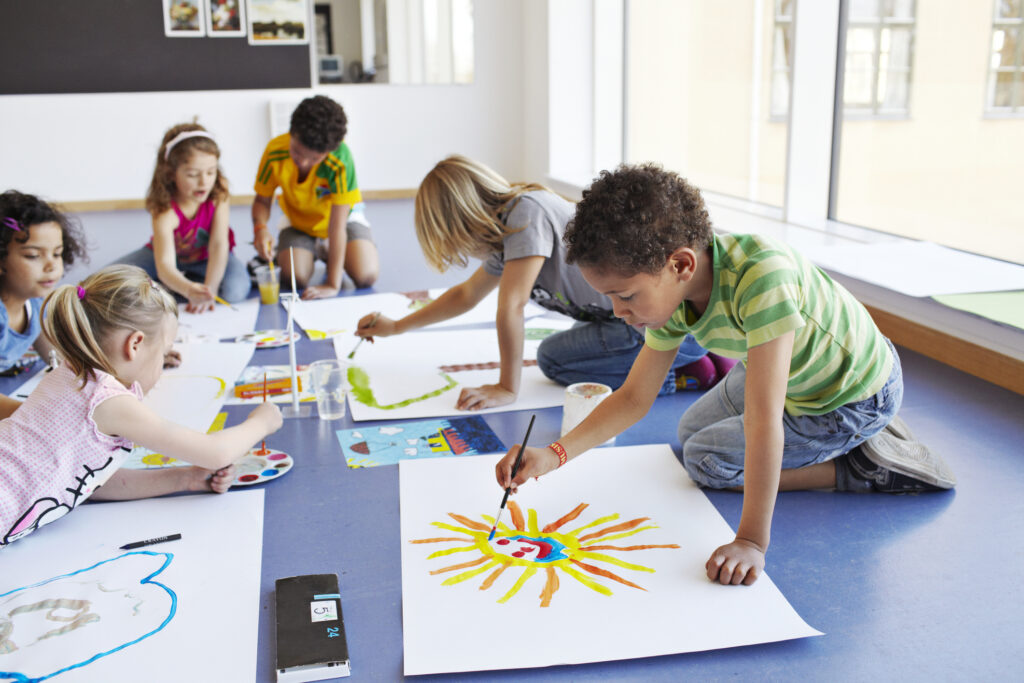Identifying the signs: symptoms of hearing loss in children
Anyone can experience hearing loss at any stage in their life.
Are you struggling to identify whether your little one has hearing issues?
Or do you work in a childcare centre and want to brush up on your knowledge to help identify any signs a child might struggle with hearing?
While newborn hearing screening has helped people worldwide recognise hearing problems from birth, some hearing-related issues may present themselves later in your child’s life.
Left untreated, hearing loss can impact a child’s academic and social success.
It’s important to note any signs that your child might be struggling with hearing loss, so you can get them the help they need via early intervention and assessment services.
The symptoms of hearing loss in children aren’t always obvious, especially for young children — so read on to discover what hearing loss is and the signs and symptoms of possible hearing loss.
What is hearing loss, and how is it diagnosed?
Hearing loss is a condition where there is either partial or total inability to hear sounds in one or both ears.
To diagnose permanent hearing loss or hearing impairment in children, you will need to book an appointment with an audiologist or hearing healthcare professional.
During the appointment, several tests are conducted to understand the severity of the hearing problem.
Usually, one or multiple of the following tests will be conducted to diagnose hearing loss:
A hearing screening
A hearing screening is the most simple test to detect possible hearing loss. This test involves playing a series of sounds or words and asking the participant to respond when they hear them.
An audiometry
An audiometry hearing test is one step up from a classic hearing screening; it involves wearing headphones and listening to sounds at different volumes and frequencies. Then, the results are run through an audiogram which can help determine the severity of the hearing loss.
Tympanometry
This test measures the eardrum’s movement in response to changes in air pressure. It can help diagnose problems with the middle ear, such as fluid buildup or a perforated eardrum.

Common signs and symptoms of hearing loss in children
As a parent or caregiver, it can be emotionally challenging to witness your child experience hearing loss, but it’s important to stay vigilant and recognise the signs so that you can work with medical professionals to come to a diagnosis and provide the best possible care for your little one.
There are a number of signs and symptoms to look for in a child experiencing hearing loss.
It’s important to understand that if your child is experiencing one or more of these symptoms, it does not mean they are necessarily experiencing hearing loss.
As children age, they can go through periods of delayed development or behavioural changes that can present as hearing loss.
Make sure to contact your medical professional or GP to get a more in-depth understanding of your child’s symptoms as well as a hearing test.
Some common signs and symptoms of hearing loss in children include:
- Difficulty hearing or understanding speech
- Delayed language development
- Frequently repeating sentences or speaking loudly
- Turning up the volume on electronic devices
Children with hearing loss may also have difficulty with schoolwork, social interaction, and behavioural issues as a result.
The impact of hearing loss on speech and language development
Hearing loss, whether temporary or more permanent, can have a significant impact on a child’s language development, vocabulary, pronunciation and more if left untreated.
The American Speech-Language-Hearing Association has presented a number of areas where hearing loss can impact communication development.
Some of the obstacles a child with hearing loss may face include the following:
- Slower vocabulary development
- Diminished ability to form complex sentences
- Difficulty hearing ‘s’ or ‘ed’ at the end of plurals
- Difficulty modulating the volume of their voice
Children with hearing loss may also experience difficulties beyond speech and language development, including:
- Social isolation and loneliness
- Poor academic performance
- Emotional difficulties relating to their hearing loss
It’s important to manage and look out for secondary effects of hearing loss. Thankfully, early intervention and specialised education can mean that most non-hearing or hearing-impaired children can develop communication skills on par with their hearing peers.
Causes and risk factors for hearing loss in children
Hearing loss is a general term that includes many different types of hearing loss, caused by a number of factors.
Some children are born with congenital hearing loss, while others may have acquired it later in life as a result of environmental factors.
That being said, there are a number of risk factors to look out for regardless; they can include:
- Family history of hearing loss
- Premature birth
- Frequent ear infections
- Complications during pregnancy
- Early exposure to loud noises
- Infections such as meningitis or measles.

Strategies for improving hearing and communication skills
Hearing loss, whether temporary or permanent, is a daunting experience for anyone, let alone a young person.
Thankfully, if your child has been diagnosed with hearing loss, a variety of strategies and therapies are available to help improve their hearing and communication skills, especially if you can tackle the issue early.
Hearing aids or cochlear implants are a common solution for hearing-impaired people, as they amplify sound and help children hear more clearly.
Many modern hearing aids can pair with FM systems or even one-way microphones; a teacher or speaker can wear this device during class, so the child can clearly hear the important lessons they would have otherwise missed.
Speech therapy for kids is a great solution that can help improve communication skills.
There are a range of communication strategies and therapies that can support communication development before and after hearing has been addressed with supportive technology.
These may include supportive strategies for communication partners, visual communication support and other approaches to boost your child’s communication skills to their full potential.
An addition, accessibility tools installed on modern computers and phones, which provide captioning and text-based alternatives, can make using digital tools such as laptops and phones easier for hard-of-hearing individuals.
Ultimately a combination of treatments best suited to your child can help to lift the burden of childhood hearing loss and allow them to achieve their potential.
Organise early intervention and assessment
If you are concerned about symptoms of hearing loss in your child or looking to organise an assessment, Early Start Australia is at your service.
The Early Start Australia program provides evidence-based early intervention and therapy services to children, young adults, and their families nationally.
Getting started is easy, simply reach out to our team and enquire about scheduling an appointment.
If you have any other questions, feel free to contact us, and our friendly team can help you with your next move.









